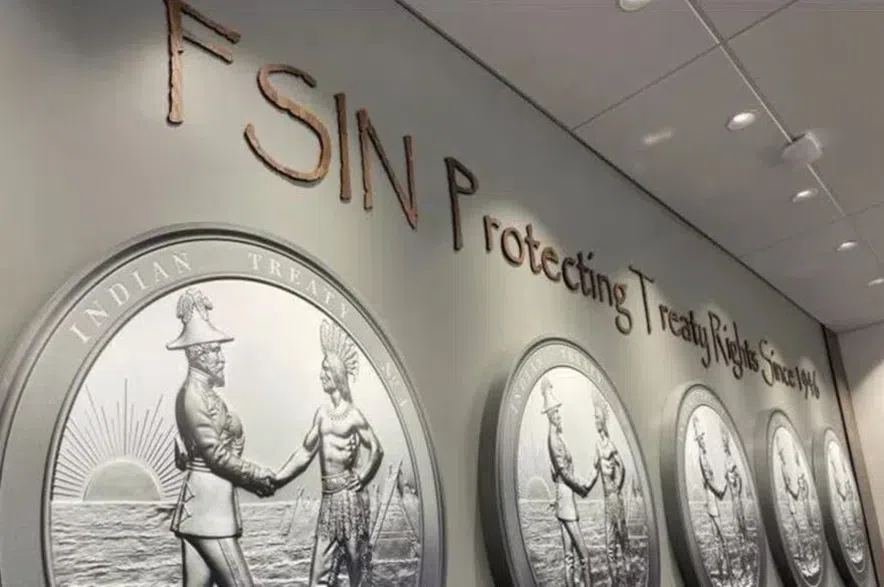The Federation of Sovereign Indigenous Nations (FSIN) says it is difficult to respond to a forensic audit without first seeing the full report.
And now Indigenous Services Canada has clarified it’s initial statement that the FSIN was briefed on the findings of the audit before it was made public and has not requested a copy of the full report.
In an emailed statement to News Talk Radio Thursday afternoon, Indigenous Services Canada clarified it “did receive requests from the FSIN for details of the audit findings, including the full audit report.”
It goes on to say, ” we will share with the FSIN the line by line of the audit samplings (which is a different document) as soon as possible and not the full audit report completed by KPMG. As stated previously”
Read more:
- FSIN breaks silence after forensic audit finds $34M in ‘questionable’ spending
- FSIN forensic audit released, transparency recommendations made
- ‘One of the biggest scandals in First Nations history’: Arcand
The forensic audit, which was conducted by KPMG on behalf of Indigenous Services Canada, concluded that more than $34 million in spending by the FSIN between April of 2019 and March of 2024 was “questionable,” unsupported or ineligible.
Responding to the audit for the first time on Wednesday, the FSIN issued a statement that it “planned to provide a full and complete response upon receipt of the detailed report from KPMG, as it is difficult to respond to any allegation without specific details.”
“However, (Indigenous Services Canada) has not yet responded to multiple requests for the full report — which we anticipate would provide the rationale for each specific finding,” the FSIN went on to say.
The ISC spokesperson noted that the full report would likely not be released even if such a request were received.
“Consistent with our normal practice, (Indigenous Services Canada) does not provide copies of the reports to funding recipients as the information is deemed highly sensitive and may contain protected and/or personal information. The final summary report, which is posted to the Department website, provides all publicly available information.”
Indigenous Services Canada said its representatives met with the FSIN on June 19 to discuss the draft audit and give the First Nations organization a chance to submit any additional documentation, and the findings of the audit were presented to the FSIN on Sept. 11.
The FSIN also took issue with some of the language used in the public report, describing it as vague.
“KPMG’s summary contains language that is inconclusive such as ‘may be in contravention’, ‘appears’ and the term ‘questionable’ itself for which they do not provide a definition,” the FSIN said.
The organization said its staff and management spent “thousands of hours collectively to respond to the audit,” and it is confident that ISC “will conclude that all expenditures are eligible with the exception of minor administrative errors that have since been corrected” after it reviews the documentation the FSIN provided in response to a lengthy list of questions and data items.
The findings of the audit quickly drew criticism from First Nations leaders in Saskatchewan, including Tribal Chief Mark Arcand, the head of the Saskatoon Tribal Council.
“This is probably one of the biggest scandals in First Nations history,” Arcand said at a news conference last week.
The organization called the criticisms it has faced in the wake of the audit “unwarranted,” and said the entire matter first arose just ahead of the FSIN’s election last year, which saw Bobby Cameron elected to a fourth term as FSIN chief.
“The FSIN has faced unwarranted attacks in relation to the forensic audit that was publicly called for by certain individuals leading up to the 2024 election and reiterated in a press conference two days prior to the election where support for a particular candidate was announced,” the organization said.
“These attacks seem to be fueled by malicious intentions and have contributed to heightened racial tensions by perpetuating negative stereotypes about First Nations.”
Editor’s note: this is an updated version to include the clarified statement provided by the ISC.











